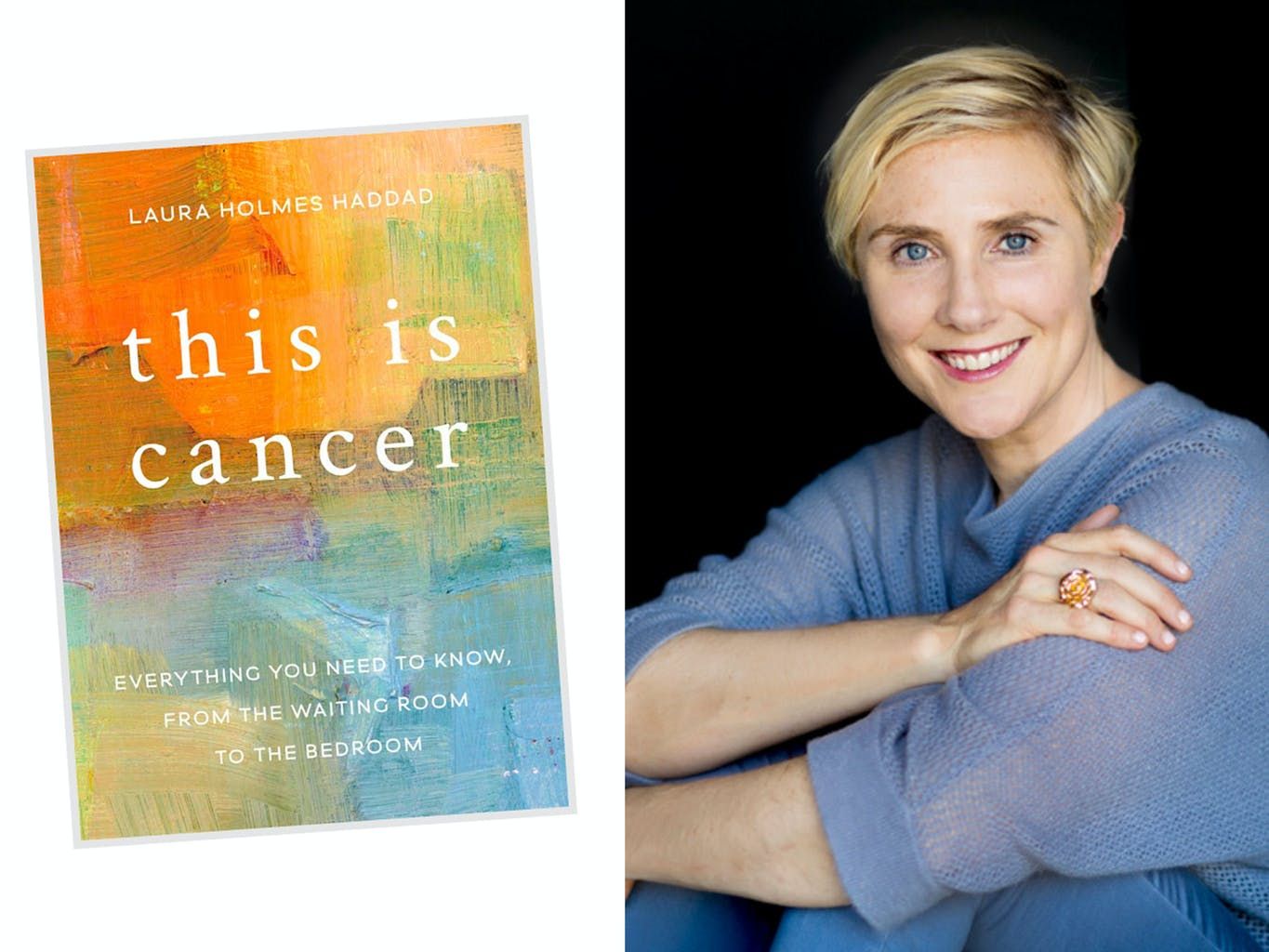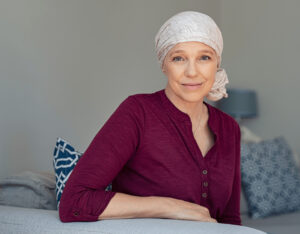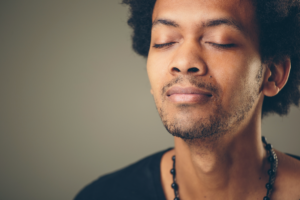Photo credit Christina McPherson
Q and A with Author Laura Holmes Haddad
LAURA’S BOOK: ‘This is Cancer…Everything You Need to Know from the Waiting Room to the Bedroom’
Cancer is indiscriminate. When Laura Holmes Haddad, a friend and neighbor of mine, was diagnosed with Stage 4 breast cancer, she discovered there was no one-stop resource to help her through her battle and no resource that truly gave her comfort.
‘This Is Cancer’ is both thoughtful and informative with equal parts humor and reality yet with a touch of flair that exudes personality. It is a what to expect when you’re expecting book for the diagnosis you don’t want, or that of a loved one, but you happen to be stuck with it.
Before discovering she had cancer, Laura had a successful career as a cookbook editor as well as an author of several books on cooking, entertaining and wine. Since turning her attention to writing about cancer, she has become a prolific speaker and advocate for cancer patients everywhere.
Recently, Laura was named as one of the ‘Extraordinary Women in the SF Bay Area’ by Gentry magazine, joining ranks with Jennifer Siebel Newsom who was also an honoree. In this post, I have a Q and A session with Laura to hear more about her new book, ‘This is Cancer’.
FOLLOW US ON FACEBOOK & INSTAGRAM
Q: What’s ‘This Is Cancer’?
A: This is Cancer, which has the subtitle “Everything You Need to Know from the Waiting Room to the Bedroom” is really a guide for patients, caregivers, and medical professionals to see a patient’s perspective on all of the details that no one really talks about when you get diagnosed with cancer.
Q: Why is it a good resource for cancer patients?
A: For example, I talk about what to pack for the hospital when you stay overnight. You may not know this, but bringing a pillow along with you will increase your comfort both at the hospital but on the way home. When you are being driven home from surgery putting a pillow across your chest under the seatbelt or under your legs, depending on what kind of surgery you have had, may help with the pain and be the added comfort that makes a difference.
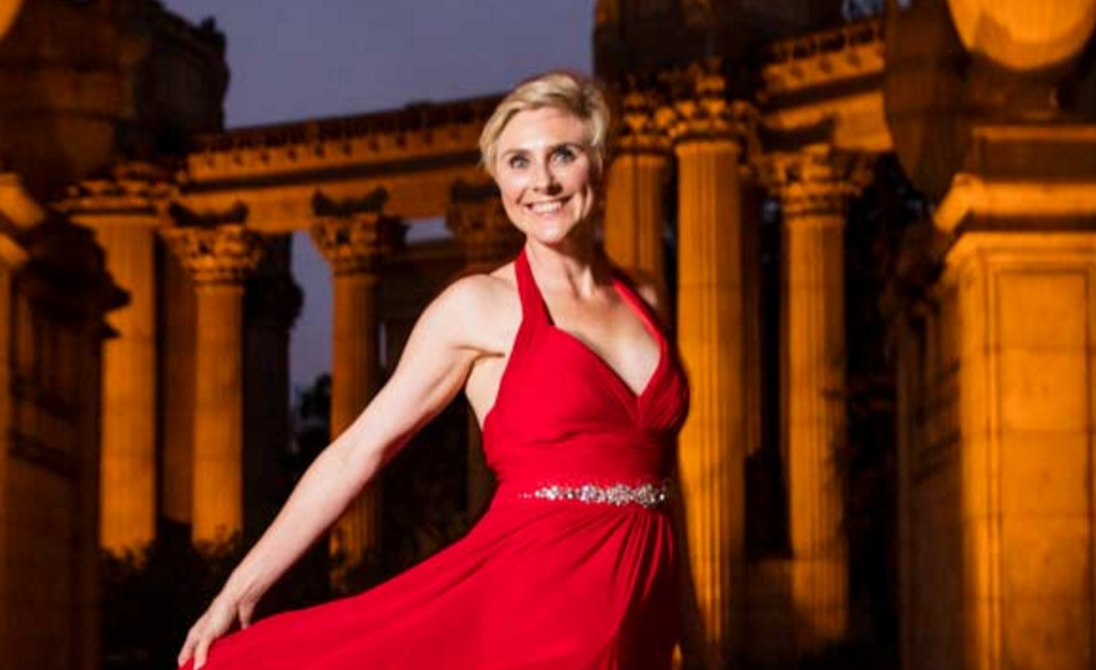
A picture of Laura from a UCSF billboard in San Francisco promoting cancer awareness.
Another difficulty is flying or traveling during treatment. It can become a real issue and so how do you deal with that? There are a lot of tips and tricks that I share from my own experience. At the time I was diagnosed I had two very young children and and I didn’t know what to tell them, so I also included a lot of information on how to speak to your children and those around you.
There are also lists for caregivers about how to talk to patients. There really is no right thing to say, so often people say nothing and the silence is really hard for the person undergoing treatment. It is very isolating to be a patient, because you are surrounded by people but you often feel lonely because no one really understands how you are feeling. ‘This is Cancer’ was written with the purpose of reaching a wide audience to say, ‘this is what I have been through and I can’t possibly be the only one and hopefully this will help make your journey easier.’
RELATED: GOVERNMENT STUDY SHOWS CANNABIS KILLS CANCER CELLS
Q: Can you tell people a little about your diagnosis?
A: I was diagnosed with stage 4 inflammatory breast cancer in November 2012. I had an 11 centimeter tumor in my left breast and it had spread to twenty lymph nodes and I also had a rib lesion. I got the call from the doctor the day after Thanksgiving and was told to pack a bag and drive to our local ER because they wanted to start chemotherapy that weekend. It was a rare and aggressive form of breast cancer.
Usually, when you catch it so late, it is very rare to recover and go into remission. In my case, I had to go through chemotherapy, but that didn’t work. Then I was fortunate enough to start a clinical drug trial for a different chemotherapy drug. Finally, I had surgery and radiation therapy.
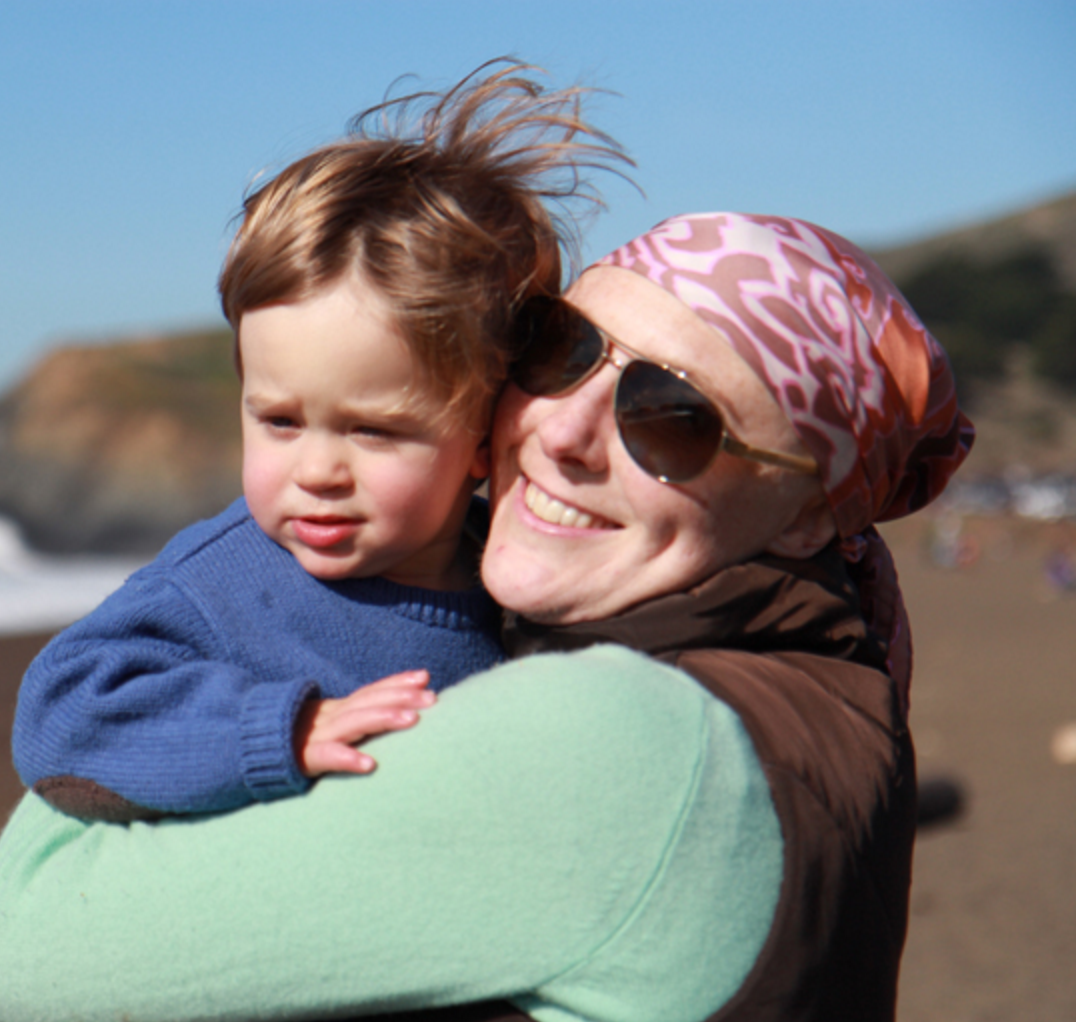
Laura with her young son during her cancer treatment.
In May of 2015, it was declared I was in remission. It all occurred within a very condensed timeline. I had a lot of different elements to my treatment and then at the end, when I was entering survivorship, there was so much that we didn’t know, things that would have really helped me, and if we had known these things it could have been a lot easier.
Q: Why did you choose to write this book?
A: I am a writer by training, so writing comes to me very naturally. I wrote throughout my treatment, almost like a journal. It really all started out as a journal because at the time of diagnoses I was given two years to live if the treatment didn’t work. I started out writing almost to show my kids what I was thinking and how hard I was working to stay with them.
As I progressed, and as I started to feel better, I wondered what it would be like if I put all of these things together. My sister, who was a really important part of my care team, had a binder with all of this information and with all of my notes and the research I did I came up with this book. I am really proud because I think it is practical and it doesn’t focus on my particular story. It is really a general guide that will be helpful to patients, their caregivers, and their medical team.
Q: What are your thoughts on cannabis for cancer?
A: I included a section on cannabis given how many states are legalizing medical use of cannabis. Surprisingly, no one really talked about the use of cannabis that much to me. Instead, the care team likes to write prescriptions. What people don’t realize is that the side effects of those prescriptions can be intense.
I did take Marinol and some edibles to help with pain, nausea, and insomnia, but I didn’t really like the side effects of the edibles either. To be honest, I did not really feel like I knew how to take an edible to get to the right experience. The one time I did take an edible, I overdid it.
In the end, Marinol is really what helped me. When I was on a clinical drug trial, I wasn’t allowed to use anything that wasn’t sanctioned on the drug trial. I think people need to get more education on cannabis and the options available to them.
Q: What have you been doing since the book was published?
A: UCSF has been a big champion of me and since October I have been on many speaking panels and have tried to be a voice for patients within cancer advocacy. Most recently, I had the chance to meet then-Vice President and Mrs. Biden in Washington, DC and talk about clinical trial drugs and personalized medicine that are part of the Cancer Moonshot Initiative.
I’ve had extraordinary opportunities to show people a patient’s perspective and how to work through what I call ‘modern cancer’. People have very old fashioned views about the needs and the treatments for patients and we really need to update those perceptions. I thought it was very important to share from the patient’s perspective, not a doctor or a med student, but a patient’s perspective on getting through cancer.
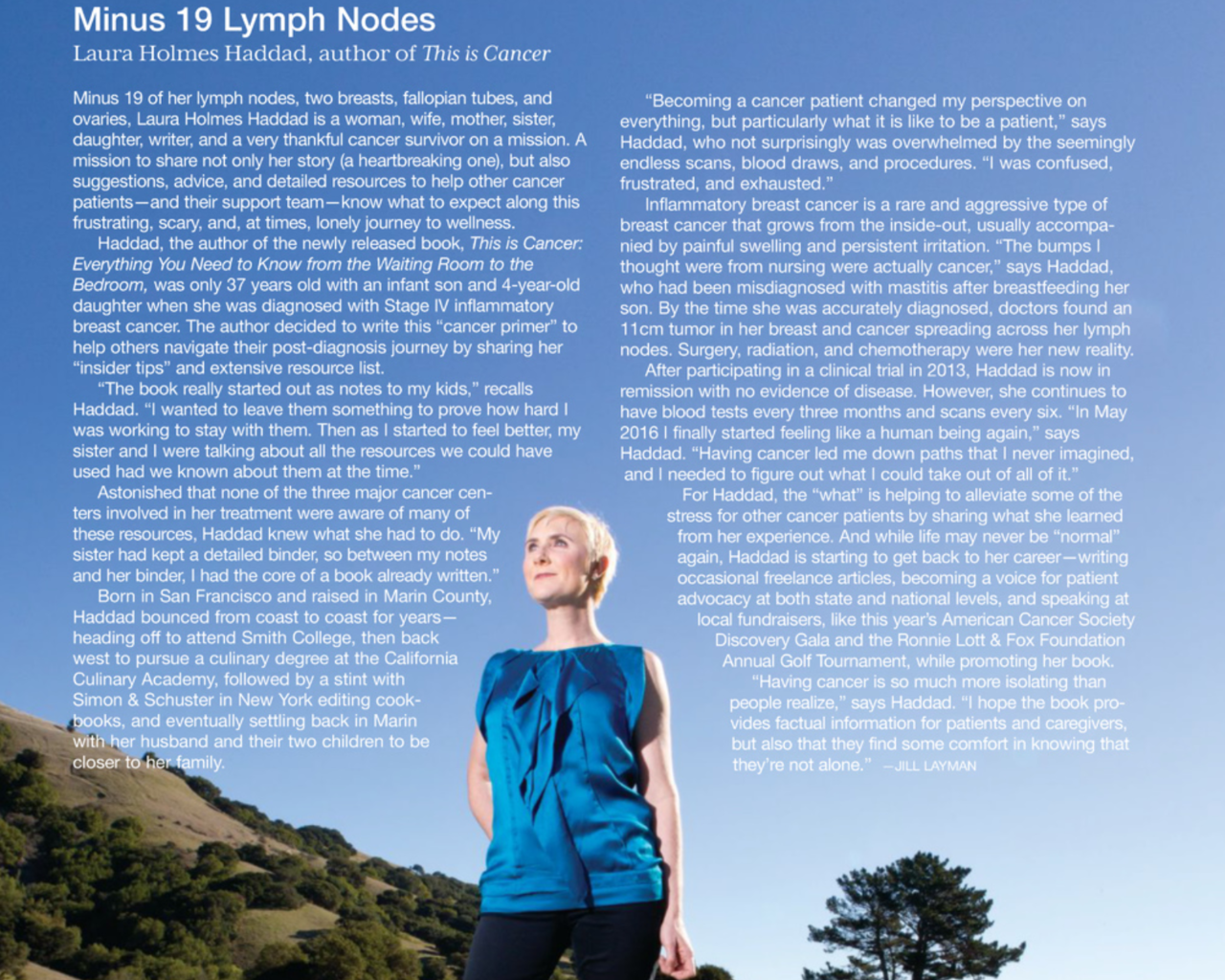
Laura is featured in Gentry magazine’s ‘Extraordinary Women’ January 2017.
Q: Is there anything else you would like to share?
A: Yes. In particular, what makes my story different, in terms of the book, is that I was 37 at the time of my diagnoses. The numbers of young adult cancer diagnoses are going up in this country. We might be caregivers to children or our own parents, we might not have insurance, we might be working freelance. There are so many added issues like how do you continue to work during treatment? How do you talk to your boss about your medical situation? How do you date if you want to date during or after treatment?
These topics need to be brought into the open. The interpersonal relationship aspect of cancer was the most surprising thing about my whole experience with cancer, hearing who said what and who didn’t say something else. There were so many things I wish I had known before, and I hope my book helps provide some of that knowledge and support.
If you are new to cannabis and want to learn more, take a look at our Cannabis 101 post. HelloMD can help you get your medical marijuana recommendation; it’s 100% online, private and efficient.



